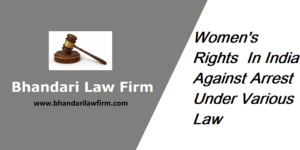Cruelty – As a Ground For Divorce
Cruelty As Ground Of Divorce : Matrimonial matters are matters of delicate human and emotional relationship. It demands mutual trust, regard, respect, love and affection with sufficient play for reasonable adjustments with the spouse. The relationship has to conform to the social norms as well.
Matrimonial matters are matters of delicate human and emotional relationship. It demands mutual trust, regard, respect, love and affection with sufficient play for reasonable adjustments with the spouse. The relationship has to conform to the social norms as well. The matrimonial conduct has now come to be governed by statute framed, keeping in view such norms and changed social order.
What is Divorce?
Divorce in general means the breakage or dissolution of marriage with the help of law, so that one can leave his or her spouse and become free from marital duties with some exceptions.
Aspects which are relevant for making any divorce but go in detail with one basis i.e. cruelty, that how Indian Hindu Law provide legal backup for this and what would be the consequences related to it. We will go with certain points like the legal provisions and basis for divorce under Hindu Law, some cases which will help you to understand the cruelty correctly.
What is Cruelty:
Every matrimonial conduct, which may cause annoyance to the other, may not amount to cruelty. Mere trivial irritations, quarrels between spouses, which happen in day-to-day married life, may also not amount to cruelty. Cruelty in matrimonial life may be of unfounded variety, which can be subtle or brutal. It may be words, gestures or by mere silence, violent or non-violent.
Requirement to constitute cruelty:
To constitute cruelty, the conduct complained of should be “grave and weighty” so as to come to the conclusion that the petitioner spouse cannot be reasonably expected to live with the other spouse. It must be something more serious than “ordinary wear and tear of married life”. The conduct taking into consideration the circumstances and background has to be examined to reach the conclusion whether the conduct complained of amounts to cruelty in the matrimonial law. Conduct has to be considered, as noted above, in the background of several factors such as social status of parties, their education, physical and mental conditions, customs and traditions. It is difficult to lay down a precise definition or to give exhaustive description of the circumstances, which would constitute cruelty. It must be of the type as to satisfy the conscience of the Court that the relationship between the parties had deteriorated to such extent due to the conduct of the other spouse that it would be impossible for them to live together without mental agony, torture or distress, to entitle the complaining spouse to secure divorce. Physical violence is not absolutely essential to constitute cruelty and a consistent course of conduct inflicting immeasurable mental agony and torture may well constitute cruelty. Mental cruelty may consist of verbal abuses and insults by using filthy and abusive language leading to constant disturbance of mental peace of the other party.
Historical Position
Hindu marriage is a holy sacrament in the life of a Hindu with other various sacraments, which are known as important for the complete life. Marriage is the valid way for male and female to live together and perform their duties and husband-wife are considered to be one in law. In 1869 the Indian Divorce Act was passed but it had remained in applicable to the Hindus and after the Independence on 18th may 1955 The Hindu Marriage Act has been passes which governs all the matters and situations related to Hindu marriages.
Impact of Physical and Mental Cruelty in Matrimonial Matters;
Prior to the 1976 amendment in the Hindu Marriage Act, 1955 cruelty was not a ground for claiming divorce under the Hindu Marriage Act. It was only a ground for claiming judicial separation under Section 10 of the Act. By 1976 Amendment, the Cruelty was made ground for divorce. The words, which have been incorporated, are “as to cause a reasonable apprehension in the mind of the petitioner that it will be harmful or injurious for the petitioner to live with the other party”.
Legal Provisions
The Hindu Marriage Act-1955 has given the legal provision for divorce on basis of cruelty under section – 13(1)(ia) as follows;
“Any marriage solemnized, whether before or after the commencement of this Act, may, on a petition presented by either the husband or the wife, be dissolved by a decree of divorce on the ground that the other party has, after the solemnization of the marriage, treated the petitioner with cruelty”.
On basis of this section we can explain this legal basis for the divorce as anybody who is getting suffer from the other party in physical manner or a mental torture or any other type of harassment then the other can reach to the court with this base and claim for the divorce. And there are various cases where courts held that the intention to be cruel is not an essential element of cruelty as envisaged under this section.
(Click To Know About Our Matrimonial and Family Litigation)
Other Grounds For Divorce
Apart from the cruelty there are several other bases for divorce on which one can claim divorce and some of those are as follows;
Adultery
Desertion
Conversion
Entering new religion
Unsoundness of mind etc.
There are certain grounds, which are provided by law specially to the women;
Husband having more than one wife living Marriage before attainment of fifteen years Consent obtained by force etc.
So on these above grounds men and women can claim for decree of divorce in front of the law.
Cruelty In Eyes Of The Court:
There are various grounds for claim on basis of cruelty and types of cruelty, which are identified by the courts in their various judgement, and the courts provide a legal backup for the sufferer in this sense. They have given following explanation within the scope of cruelty under section 13(1)(ia);
- It is sufficient that if the cruelty is of such type that it becomes impossible for spouses to live together,
- The leveling of false allegation by one spouse about the other having alleged illicit relations with different persons outside wedlock amounted to mental cruelty,
- A husband cannot ask his wife that he does not like her company, but she can or should stay with other members of the family in matrimonial home. Such an attitude is cruelty in itself on the part of the husband,
- Social torture by anyone of the spouses to the other, found to be as the mental torture and cruelty.
- If the intention to harm, harass or hurt could be inferred by the nature of the conduct or brutal act complained of, cruelty could be easily established. But the absence of intention should not make any difference in the case. The cruel treatment may also result from the cultural conflict between the parties.
- A party can cause mental cruelty when the other spouse levels an allegation that the petitioner is a mental patient, or that he requires expert psychological treatment to restore his mental health.
There are various other forms of cruelty given by courts in different cases.
Hindu Marriage Act, 1955, Section 13(1)(ia) – Mental Cruelty – Law enunciated in various judgments of Supreme Court summed up :-
(i) Section 13(1)(ia) does not define ‘ Cruelty ‘ and the same could not be defined – The ‘ Cruelty ‘ may be mental or physical, intentional or unintentional – If it is physical, the court will have no problem to determine it – It is a question of fact and degree – If it is mental, the problem presents difficulty. 1988(1) SCC 105, relied.
(ii) The expression ‘ Cruelty ‘ has an inseparable nexus with human conduct or human behaviour – It is always dependent upon the social strata or the milieu to which the parties belong, their ways of life, relationship, temperaments and emotions that have been conditioned by their social status.
(iii) Conception of legal Cruelty undergoes changes according to the changes and advancement of social concept and standards of living – To establish legal Cruelty, it is not necessary that physical violence should be used. 1988(1) SCC 105, relied.
(iv) A set of facts stigmatized as Cruelty in one case may not be so in another case – The Cruelty alleged may largely depend upon the type of life the parties are accustomed to or their economic and social conditions. 1988(1) SCC 105, relied.
(v) Each case may be different – New type of Cruelty may crop up in any case depending upon the human behaviour, capacity or incapability to tolerate the conduct complained of. 1966(2) All England Reporter 257, relied.
(vi) Mental Cruelty in Section 13(1)(ia) of Hindu Marriage Act can broadly be defined as that conduct which inflicts upon the other party such mental pain and suffering as would make it not possible for that party to live with the other.
(vii) What is Cruelty in one case may not amount to Cruelty in the other case – The concept of Cruelty differs from person to person depending upon his upbringing, level of sensitivity, educational, family and cultural background, financial position, social status, customs, traditions, religious belief, human values and their value system. 2007(2) RCR (Crl.) 515 : 2007(2) RCR (Civil) 595 : 2007(2) Recent Apex Judgment (RAJ) 177, relied.
(viii) Mental Cruelty cannot be established by direct evidence and it is necessarily a matter of inference to be drawn from the facts and circumstances of the case. 2002(3) RCR (Civil) 529, relied.
(ix) Question of mental Cruelty has to be considered in the light of the norms of marital ties of the particular society to which the parties belong, their social values, status and environment in which they live. 2005(1) RCR (Civil) 309, relied.
Note: For any further information or any query you may contact us on 9855677966 or via email info@bhandarilawfirm.com



